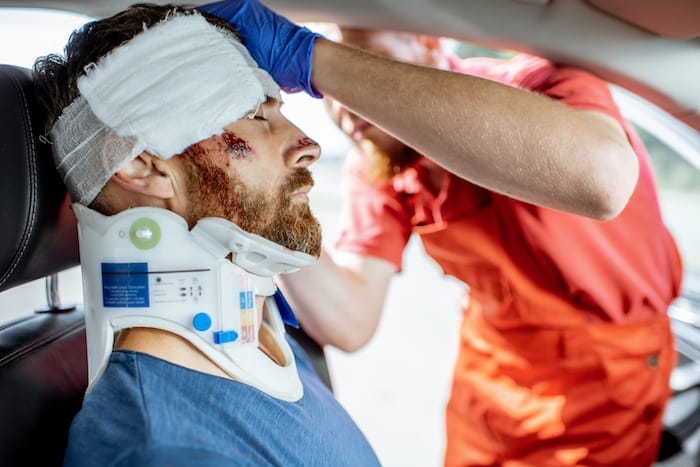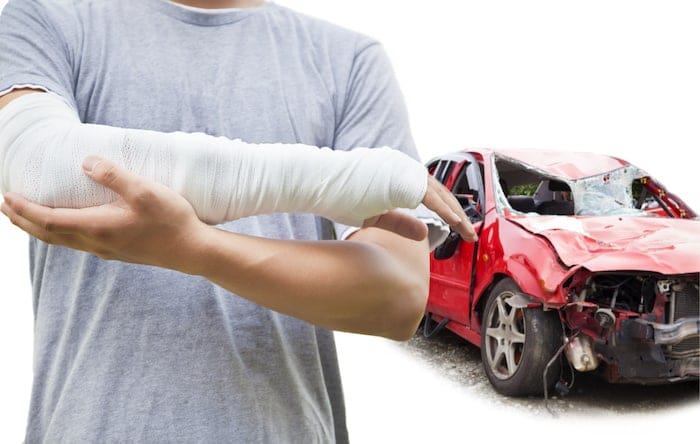Sustaining injuries in a car accident could be a devastating ordeal. Whether it’s minor or severe, seeking prompt medical attention is one of the essential things you should do. Receiving proper treatment can help ensure your medical conditions won’t worsen. However, you must know that treatments for car accident injury victims vary depending on the severity of the injuries.
In this article, you will learn about the four kinds of treatments you may need after a car accident.
- Emergency Treatment Services
It’s one of the common kinds of treatment for people with car accident injuries. If you were seriously injured and in pain right after the crash, emergency treatments might help stabilize yourself. By getting yourself treated before reaching the hospital, you could prevent your injuries from turning into a more serious health condition.
Also, receiving emergency treatment means obtaining a timely diagnosis, which is vital in proving your injuries were caused by a car accident.
- Hospitalization
Depending on the type of injury sustained in a car collision, you may require hospitalization as part of your treatment plan to further monitor and stabilize your condition. For example, suppose you were diagnosed with a severe traumatic brain injury. In that case, you may have to be admitted to an intensive care unit to receive adequate treatment and speed up your recovery.
Given the extent and severity of your injuries, you need experienced car accident doctors to care for your medical needs. Aside from emergency wards, these specialists also offer services in outpatient settings for minor car accident injuries.
- Surgery
Some car accident injuries may require immediate surgical intervention to prevent severe medical complications.
It’s par for the course if a victim is dealing with serious injuries, such as internal bleeding, broken bones, and organ damage.
The extent of the surgery required depends on the severity of the injuries. For instance, certain kinds of fractures only need minimal surgery to set the bones and place them in casts or braces for recovery. Meanwhile, hemorrhaging will require more invasive procedures to prevent multiple-organ failure.
Some common surgeries after a car accident can include:
- Back surgery: You may sustain back injuries in a collision, including herniated discs, broken vertebra, torn soft tissue, and many more. These injuries may require surgery, depending on the situation. For example, if you need to remove a part of your herniated disc to ease the pressure on your nerve, you should undergo a discectomy. On the other hand, you could seek spinal fusion surgery to combine two vertebrae and relieve the pain of an injury.
Typically, surgeries for back injuries can be costly. To help you cope with the expenses, you may file an injury claim with the help of a lawyer to seek compensation for your injuries.
- Brain surgery: If you suffered a traumatic brain injury, a surgical procedure might be needed to treat certain medical conditions. For example, if you need to treat a blood clot, fix a skull fracture, or stop the bleeding in your brain, you should undergo brain surgery following the accident. However, it’s essential to keep in mind that getting surgery in the brain would take more recovery time.
- Surgery for internal injuries: If you’re dealing with internal injuries, you may need a surgeon to treat your crushed or punctured internal organs. By receiving a surgical operation, you can prevent the risk of internal bleeding, a severe medical condition to watch out for when injured in an auto accident.

A lot of the outcomes of this intensive form of medical intervention are dictated by what comes after all the procedures. Hence, it’s essential to follow your doctor’s instructions to recover quickly and prevent fatal complications.
- Therapy
Aside from surgery, you may also require rehabilitation therapies after a car accident.
Therapy can be essential to the recovery process. It can help you in various ways, such as managing pain, reducing stress, and recovering your range of motion. It can also help you cope with the incident’s emotional and psychological impact.
Per a doctor’s recommendations, you can try different therapies if you’ve been injured in an accident.
These can include:
- Massage therapy: A good massage therapy can be an excellent treatment when a car collision causes soft tissue damage. It can help relax the muscles to manage neurological pain caused by a pinched nerve. Depending on the soft tissue damage, you may use a trigger point massage or a deep massage.
- Chiropractic therapy: It’s another therapy you can consider when getting injured in a crash. If you have a back or neck pain injury, chiropractic therapy can help you ease pain and regain mobility over time. Common chiropractic care modalities can include soft tissue mobilization, spinal traction, and many more.
- Orthopedic physical therapy: One of the injuries you may suffer from car accidents is whiplash. When diagnosed with it, you may require this type of therapy to remove pain and recover fully. Also, undergoing orthopedic physical treatment can help your bones, ligaments, and tendons to work correctly again.
- Neurological physical therapy: If your car accident causes you tingling and numbness in extremities, you may have to undergo neurological physical therapy to relieve the nerve irritation. If you have brain trauma, taking this type of therapy may also help avoid serious side effects. With therapists’ recommended programs and psychiatric care, you could restore your good health condition faster.
Talk to your doctor about which therapy is right for your situation. You can recover quickly and regain a semblance of regular life with a proper program.
Bottom Line
Car accidents can be traumatic, primarily when they result in an injury or death. Hence, if you’ve been injured in a vehicular collision, keeping these kinds of treatments in mind could help speed up your healing and recovery. In doing so, you may have less trouble getting your normal life back and living a healthier life.
The Editorial Team at Healthcare Business Today is made up of skilled healthcare writers and experts, led by our managing editor, Daniel Casciato, who has over 25 years of experience in healthcare writing. Since 1998, we have produced compelling and informative content for numerous publications, establishing ourselves as a trusted resource for health and wellness information. We offer readers access to fresh health, medicine, science, and technology developments and the latest in patient news, emphasizing how these developments affect our lives.








